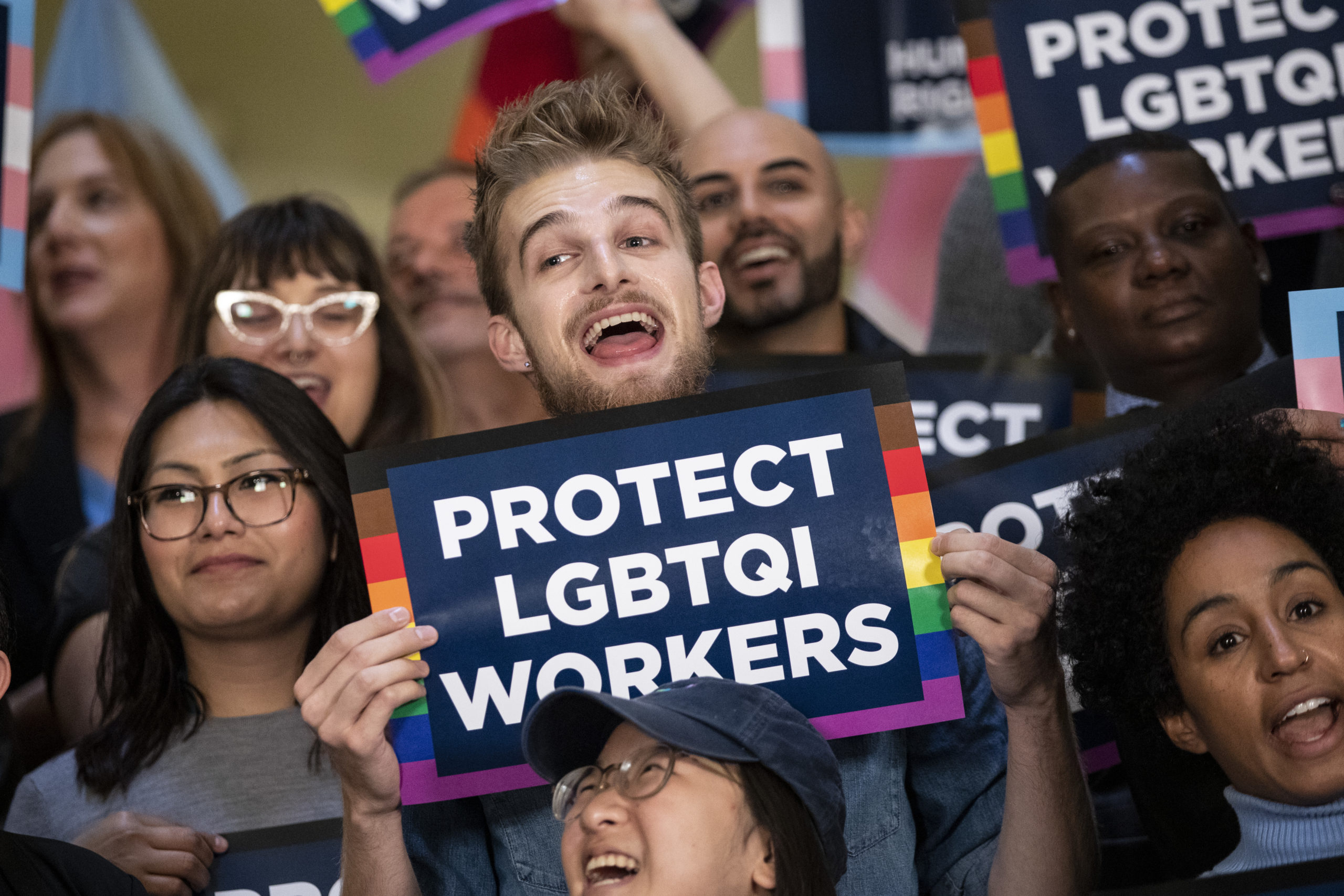Activists rally at New York City Hall on October 8, 2019, before the US Supreme Court heard three cases on whether it is legal to fire workers because of their sexual orientation or gender identity. (Drew Angerer/Getty)
A gay man in Tennessee has invoked last month’s historic US Supreme Court ruling on workplace discrimination after he was “humiliated” and called a “faggot” by his bosses.
Jacob Brashier, a gay man who lives in Blount County, Tennessee, is believed to be the first person in the state to invoke the landmark US Supreme Court ruling that LGBT+ people are entitled to protection from discrimination in employment based on their sexual orientation and gender identity.
On June 15, the court ruled that existing provisions under the 1964 Civil Rights Act, which outlaw discrimination based on sex, also apply to cases where “an employer fires an individual merely for being gay or transgender”.
The ruling extended the sex-based employment discrimination protections known as Title VII to LGBT+ people in all 50 states.
According to Knox News, Brashier is suing his former employer, assisted living facilities management firm Manorhouse Management Inc, alleging that by firing him the firm violated the ruling.
He was hired by the firm in April, 2020, as a certified nursing assistant and was fired on June 19, just four days after the Supreme Court ruling.
Brashier’s lawsuit, filed by attorney James Friauf, claims the gay man was “summarily subjected to disparagement, ridicule, and humiliation in the course of his employment with defendant”.
According to the lawsuit: “Brashier began experiencing discriminatory treatment by his supervisors beginning on or about June 6, 2020, including being called a “faggot” on several occasions and having a soiled rag thrown in his face.”
When he submitted a complaint about the alleged homophobic treatment, Brashier claims the company said he was lying. He also alleged that Manorhouse Management then retaliated by cutting his pay, before devising a reason to fire him.
The lawsuit added: “He files this action to rectify the wrongs he has experienced as a result of his sexual orientation, as well as to advance the rights of his fellow LGBTQ community members, who have been historically and unlawfully marginalized and oppressed for generations.”
